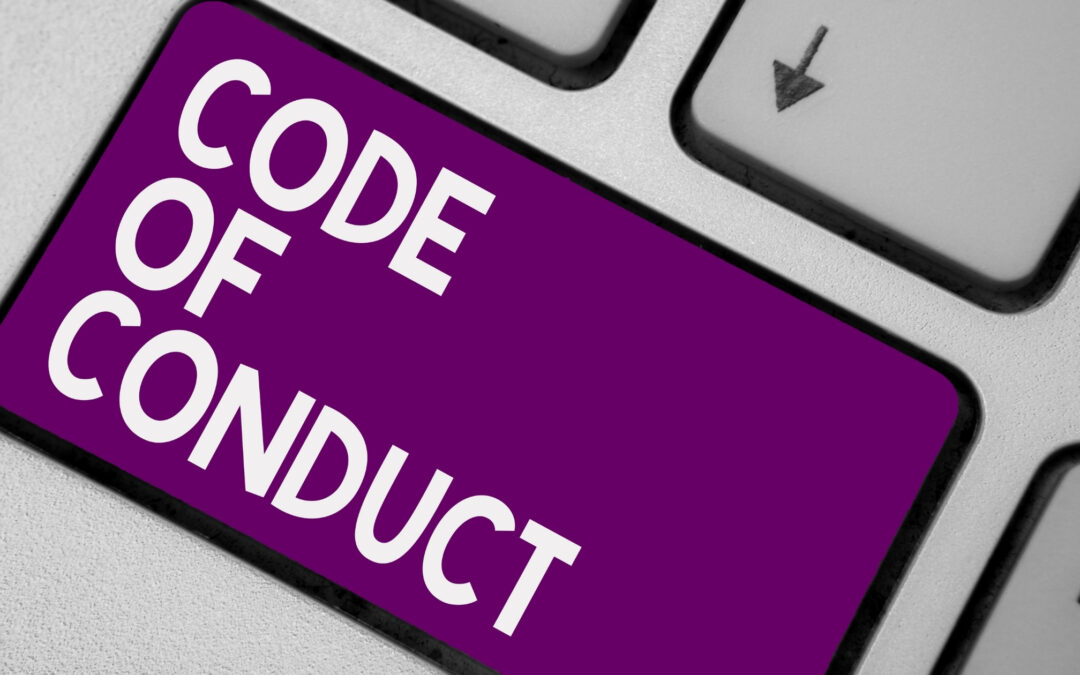Should your association have a code of ethics/conduct? If a code exists, where is it located: in your bylaws or is it a separate document? Which is best and what should it cover? How and when should it be utilized? At the recent virtual meeting of the American Society of Association Executives (ASAE), a session focused on these very points.
Governance documents lay the foundation for an association to possess the authority to ‘engage in member conduct review and discipline’. Bylaws confirm the association’s right to discipline members according to a specific code. Standalone codes offer ‘convenience, clarity and an easy revision/approval’. If a code is adopted, it may require membership approval.
Associations have a number of tools at their disposal that can help guide member conduct, including educational sessions that can address the subject, committees that can answer questions concerning membership conduct issues and membership admission and renewal procedures.
There are a number of considerations to keep in mind when drafting a code:
- How will the association regulate or review potential violations?
- What are the particular practices or behaviors that should be addressed?
- What about conduct that occurs while engaging with the association or outside of the association?
- What specifically should be included or not included?
An efficient way to develop the code is to form a special committee and then request feedback from the board and the membership to make sure everything that should be regulated is included. Time is also a factor. Should the code of ethics only apply to the future or should it also apply to past conduct as well? If yes, for what period of time? Checking state rules is important, since due process often requires notice and an opportunity to be heard.
The opportunity to be heard clause also needs to be defined. For example, what type of opportunity would be provided? Would it be a hearing in person or in writing or something else? Can legal counsel be provided? As far as the complaint, who could submit one and who would consider whether the complaint met the requirements of a breach of ethics? A method should be put in place ensuring that the member has duly received notice for a possible violation of ethics.
Once a process has been determined, the association must make sure the process is consistently enforced. The ASAE presentation stressed that courts ‘defer to associations’ decisions on member discipline if such decisions are supported by the evidence and if the association is consistent in its application of member discipline’. Therefore, it’s ‘critical to ensure scope of the code of ethics / conduct is sufficient basis under which to discipline particular conduct’. Appeals are not a legal requirement, but your local state rules should be reviewed; most often it is at the discretion of the association.
Putting adequate and thoughtful safeguards in place will ensure that your code of ethics will be fair and consistently enforced and will serve as a benefit to the membership as a whole.
